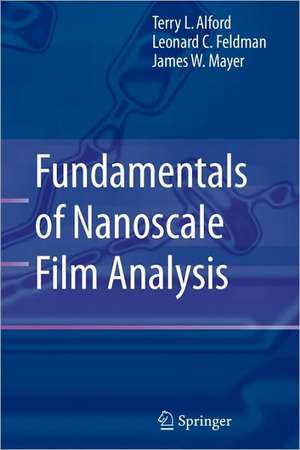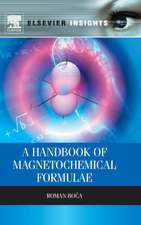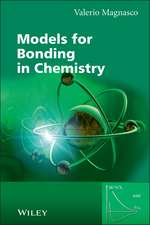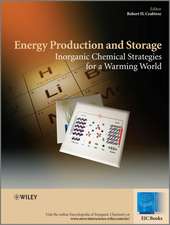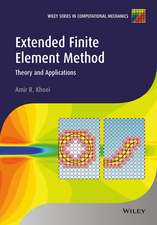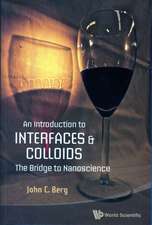Fundamentals of Nanoscale Film Analysis
Autor Terry L. Alford, L.C. Feldman, James W. Mayeren Limba Engleză Paperback – 29 oct 2010
The book describes the fundamentals of materials characterization from the standpoint of the incident photons or particles which interrogate nanoscale structures. These induced reactions lead to the emission of a variety of detected of particles and photons. It is the energy and intensity of the detected beams that is the basis of the characterization of the materials. The array of experimental techniques used in nanoscale materials analysis covers a wide range of incident particle and detected beam interactions.
Included are such important interactions as atomic collisions, Rutherford backscattering, ion channeling, diffraction, photon absorption, radiative and nonradiative transitions, and nuclear reactions. A variety of analytical and scanning probe microscopy techniques are presented in detail.
| Toate formatele și edițiile | Preț | Express |
|---|---|---|
| Paperback (1) | 586.70 lei 6-8 săpt. | |
| Springer Us – 29 oct 2010 | 586.70 lei 6-8 săpt. | |
| Hardback (1) | 650.69 lei 6-8 săpt. | |
| Springer Us – 16 feb 2007 | 650.69 lei 6-8 săpt. |
Preț: 586.70 lei
Preț vechi: 690.24 lei
-15% Nou
Puncte Express: 880
Preț estimativ în valută:
112.27€ • 120.05$ • 93.60£
112.27€ • 120.05$ • 93.60£
Carte tipărită la comandă
Livrare economică 18 aprilie-02 mai
Preluare comenzi: 021 569.72.76
Specificații
ISBN-13: 9781441939807
ISBN-10: 1441939806
Pagini: 352
Ilustrații: XIV, 336 p.
Dimensiuni: 155 x 235 x 18 mm
Greutate: 0.49 kg
Ediția:Softcover reprint of hardcover 1st ed. 2007
Editura: Springer Us
Colecția Springer
Locul publicării:New York, NY, United States
ISBN-10: 1441939806
Pagini: 352
Ilustrații: XIV, 336 p.
Dimensiuni: 155 x 235 x 18 mm
Greutate: 0.49 kg
Ediția:Softcover reprint of hardcover 1st ed. 2007
Editura: Springer Us
Colecția Springer
Locul publicării:New York, NY, United States
Public țintă
GraduateCuprins
An Overview: Concepts, Units, and the Bohr Atom.- Atomic Collisions and Backscattering Spectrometry.- Energy Loss of Light Ions and Backscattering Depth Profiles.- Sputter Depth Profiles and Secondary Ion Mass Spectroscopy.- Ion Channeling.- Electron-Electron Interactions and the Depth Sensitivity of Electron Spectroscopies.- X-ray Diffraction.- Electron Diffraction.- Photon Absorption in Solids and EXAFS.- X-ray Photoelectron Spectroscopy.- Radiative Transitions and the Electron Microprobe.- Nonradiative Transitions and Auger Electron Spectroscopy.- Nuclear Techniques: Activation Analysis and Prompt Radiation Analysis.- Scanning Probe Microscopy.
Textul de pe ultima copertă
Modern science and technology, from materials science to integrated circuit development, is directed toward the nanoscale. From thin films to field effect transistors, the emphasis is on reducing dimensions from the micro to the nanoscale. Fundamentals of Nanoscale Film Analysis concentrates on analysis of the structure and composition of the surface and the outer few tens to hundred nanometers in depth. It describes characterization techniques to quantify the structure, composition and depth distribution of materials with the use of energetic particles and photons.
The book describes the fundamentals of materials characterization from the standpoint of the incident photons or particles which interrogate nanoscale structures. These induced reactions lead to the emission of a variety of detected of particles and photons. It is the energy and intensity of the detected beams that is the basis of the characterization of the materials. The array of experimental techniques used in nanoscale materials analysis covers a wide range of incident particle and detected beam interactions.
Included are such important interactions as atomic collisions, Rutherford backscattering, ion channeling, diffraction, photon absorption, radiative and nonradiative transitions, and nuclear reactions. A variety of analytical and scanning probe microscopy techniques are presented in detail.
The book describes the fundamentals of materials characterization from the standpoint of the incident photons or particles which interrogate nanoscale structures. These induced reactions lead to the emission of a variety of detected of particles and photons. It is the energy and intensity of the detected beams that is the basis of the characterization of the materials. The array of experimental techniques used in nanoscale materials analysis covers a wide range of incident particle and detected beam interactions.
Included are such important interactions as atomic collisions, Rutherford backscattering, ion channeling, diffraction, photon absorption, radiative and nonradiative transitions, and nuclear reactions. A variety of analytical and scanning probe microscopy techniques are presented in detail.
Caracteristici
Comprehensively treats the major characterization techniques used to analyze thin films from the micro- to nanoscale Incorporates the use of x-ray fluorescence (XRF) in thin film analysis Focuses on surface analysis and includes analytical techniques such as XRF, XRD, and electron microscopy Offers a modern version (with a nano focus) on the well regarded 1986 book, "Surface and Thin Film Analysis" written by Feldman and Mayer Includes supplementary material: sn.pub/extras
